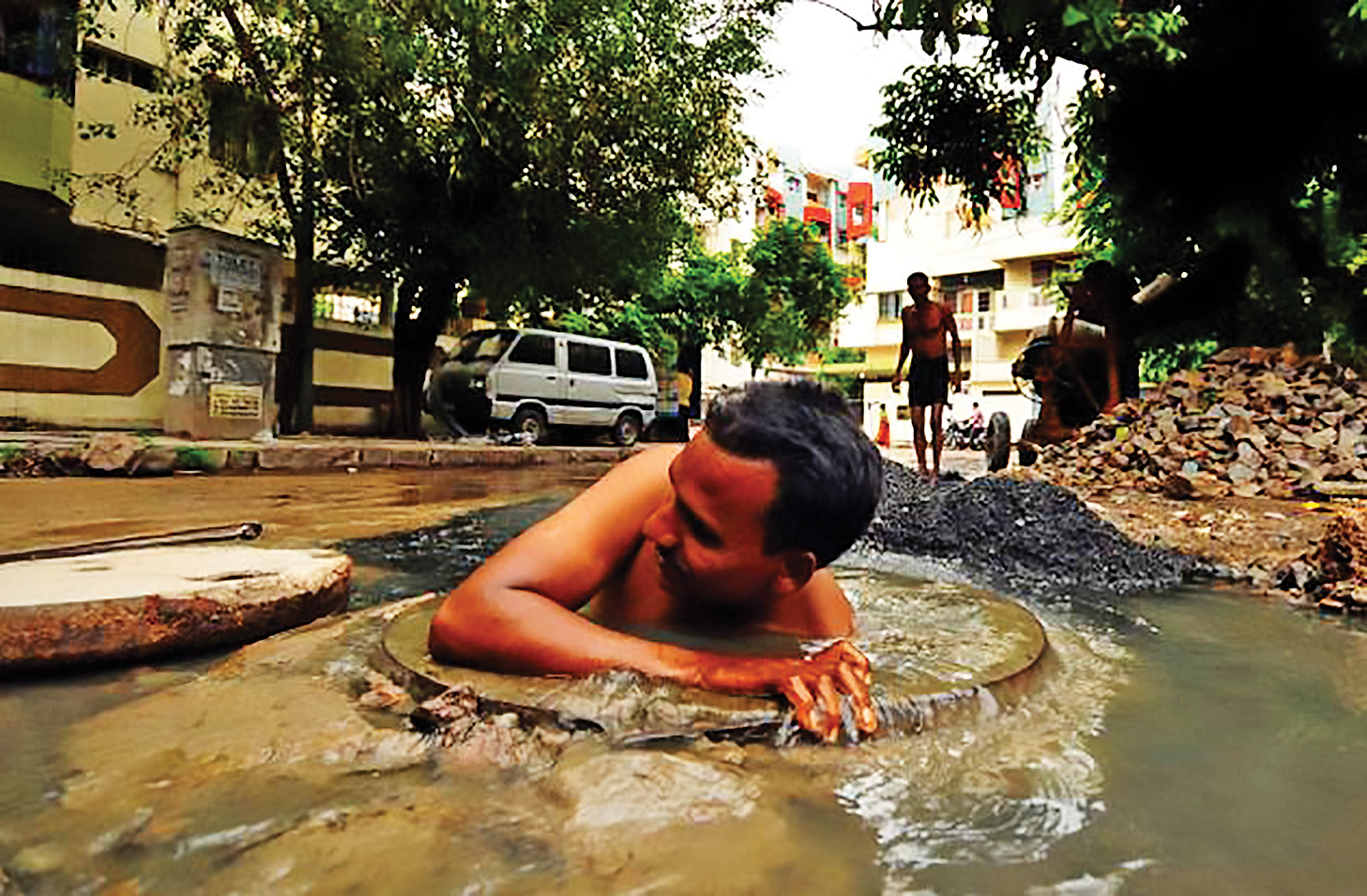Being a reporter, I come across startling ground realities that make me question the state of the society we are living in
I was perturbed when I heard the news of the death of four manual scavengers in July last year. I was deeply saddened by the fact that even today — 25 years after the practice was prohibited — India has not been able to eliminate it even as hundreds of such workers continue to die. Are they forced to do this because of their caste? This is a question stuck in my mind.
I used to ask myself — are these deaths or murders?
Before I joined Patriot as a reporter, I used to believe the data projected by the National Commission for Safai Karamcharis (NCSK) — according to which, 612 workers have died due to manual scavenging since 1993.
I got to know the reality after I heard about Bezwada Wilson, founder of Safai Karmchari Andolan — an organisation which has been tracking every death and has ridiculed every figure given by the government bodies. The organisation claims that 1,790 people have died so far due to manual scavenging.
Even though I was astounded by the organisation’s claims, I somehow believed them. Looking at how the past and present governments have failed to eradicate this practice, we will have to believe such organisations who are working tirelessly to bring the movement to the forefront.
Last month, I was assigned to work on a series on the families of those manual scavengers who have died since 2017. Personally, I don’t like using the word ‘dead’. Because this practice is deliberate, unkind and thoughtless. They are not even deaths, but cruel and continued killings.
My first assignment was to go and meet the family of Swarn Singh, who died in July last year. As I found my way to his home in Ambedkar Colony and sat down with his wife and two sons, I remember the look on his mother’s face as she found the questions difficult to answer. There were times when her son, Jaspal Singh, had to console her as she would get teary-eyed. One of the sons had gone inside the tank to save his father, unfortunately, he didn’t suceed.
These stories affect you on a personal level. After every visit, I used to mull over the pain that these families had to endure because of such untimely and tragic deaths.
When I went to visit Inderjeet’s family, I had a hard time finding their house. I kept taking Inderjeet’s name to ask for directions and I was shocked to know that the neighbours had no idea about his death even after a year. One of them asked me what had happened to him.
When I finally found the house and met his ailing father, we started talking about Inderjeet. His father said, “That was not our work. That’s what the chamars do.” I could sense the deeply ingrained caste consciousness. I was startled to know that the societal evil of caste discrimination exists in some parts of the country till today. However, it’s not his fault, it’s what we’ve been taught as a society.
Something similar thing happened in another field visit to Kalyanpuri (East Delhi) to meet the family of Mohan, who died in August last year. At first, it seemed impossible to find his home; again nobody was aware of the fact that Mohan had died last year. As I continued walking from lane to lane, asking every passer-by for directions, the social structure was not only quite visible but it also kept changing.
People uttered the word “jhuggi” in an obnoxious way. I reached the slum area and again asked for Mohan’s house. A lady sitting on a charpai said, pointing towards a lane, “That is where the bhangis live.”
She makes a face, and asks the reason for my presence in the colony. I tell her I’m a reporter and want to meet the family, the reaction changed on her face, it was more sympathetic. Maybe it was because I was eager to meet, or maybe there’s no reason.
Such things make you question the attitude of the society towards these deaths — their ignorance and lack of empathy. It also shows how people belonging to the same class also have no solidarity.
After every field visit, I was left with a multitude of questions stuck on my mind –how can people not know about these deaths? Are we so distant from the reality? Are these deaths or murders? How will these families endure the pain? Will we ever be able to eliminate this societal evil?





